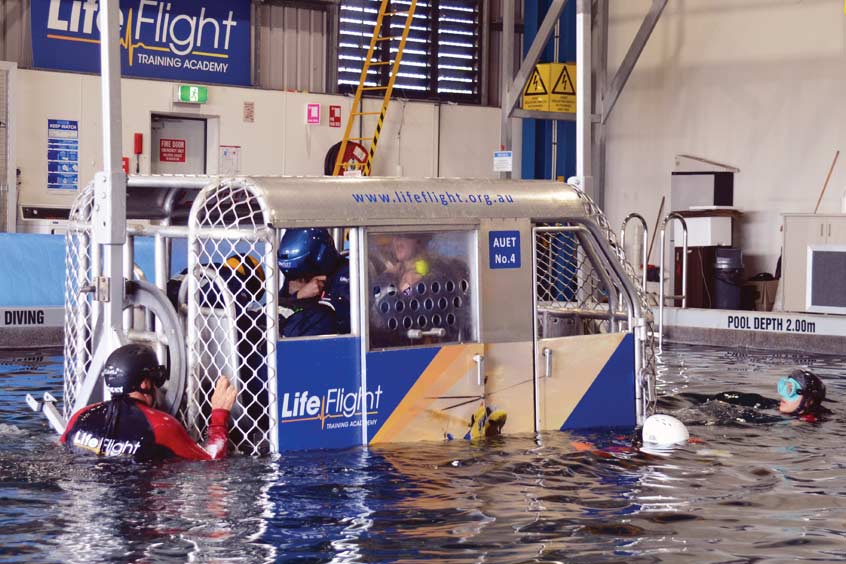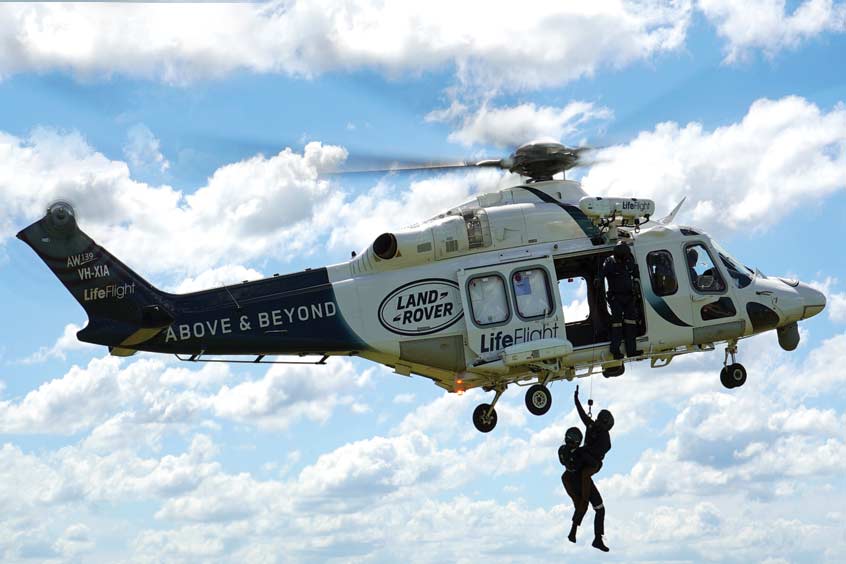ACE 2026 - The home of global charter.
 The bimonthly news publication for aviation professionals.
The bimonthly news publication for aviation professionals.



The AW139 Land Rover LifeFlight Special Mission helicopter that was handed over to Australian aeromedical retrieval service RACQ LifeFlight Rescue at the end of last year has taken to the skies to train Queensland's newest critical care doctors in winching sick or injured patients out of difficult to access locations. RACQ LifeFlight Rescue's chief aircrew officer Simon Gray said winching is a crucial component of the doctors' training, which allows rescue choppers across the state to be able to take doctors to anyone in need, even in challenging locations. “This is one of the most important parts of their training with us, as this means we can take advanced medical care to almost anywhere that's needed,” Gray comments.
Through a specially designed training programme that includes theory, static exercises and live winches the doctors progressively learnt how to perform winches with a paramedic, with a patient, with a stretcher and also on their own.
“So if they have a patient who requires medical care while they're winching up, they can be on that stretcher and provide that assistance if needed,” adds Gray.
The Land Rover LifeFlight Special Mission helicopter is a fully integrated aircraft, which can operate in extreme situations from offshore in the wildest ocean conditions, to the most rugged and hostile inland environments.
The winching exercise enabled the crew to further refine their skills and continue their training regime, while allowing the fleet of RACQ LifeFlight Rescue community helicopters to remain online and available for life-saving missions.
The aviation component is one of the most exhilarating experiences of the LifeFlight Training Academy's aeromedical training programme, which every RACQ LifeFlight Rescue critical care doctor undergoes, before taking flight. The highly-skilled doctors also tackle helicopter underwater escape training (HUET), pre-hospital care clinical training and a series of high-pressure mock scenarios to prepare them for situations they may face on the job.
“The training package is probably on par with some of the world's leading pre-hospital retrieval courses,” new recruit Dr Faraaz de Belder says. “Really world class training, really high-fidelity simulation, excellent safety training.”
The HUET and sea survival training, run by the LifeFlight Training Academy's own team of skilled instructors, is carried out over two days to ensure each trainee is fully prepared before being 'dunked' in a mock water emergency.
“We run through one full day of theory training, before we put them into the pool environment. From there we begin with emergency breathing systems. We'll work through that system on a shallow water platform before we put them into the real dunker,” sea survival instructor Jenevieve Peacock says.
The HUET experience can initially be daunting for doctors, but they quickly gain confidence under careful guidance and with back-up from safety divers. “It's pretty scary when you first go in there but the instructors are really on the ball and taught us really well. Being able to run through dry drills before being dunked also really helped,” Dr de Belder adds.
The intensive clinical skills programme brings together LifeFlight Retrieval Medicine's most experienced doctors to teach valuable lessons about pre-hospital care.
Using the LifeFlight Training Academy's state-of-the-art equipment, including life-like mannequins and a medical simulator that is fitted out as the cabin of an AW139 helicopter, the recruits practice a range of possible scenarios.
“The training's been really good in terms of preparing us for what difficulties we may face on the ground and also some of the different aspects of pre-hospital medicine; the fact that you're going to have fewer resources and people around you to help and being mindful about these challenges and preparing for them, so when you're there, you're able to perform,” Cairns-based RACQ LifeFlight Rescue critical care doctor Raed Khuffash explains.
LifeFlight Retrieval Medicine takes on new retrieval registrars twice a year, who are stationed with helicopter and fixed-wing aeromedical services around Queensland. The majority of the RACQ LifeFlight Rescue critical care doctors' work is performed on behalf of Queensland Health under a ten-year service agreement.